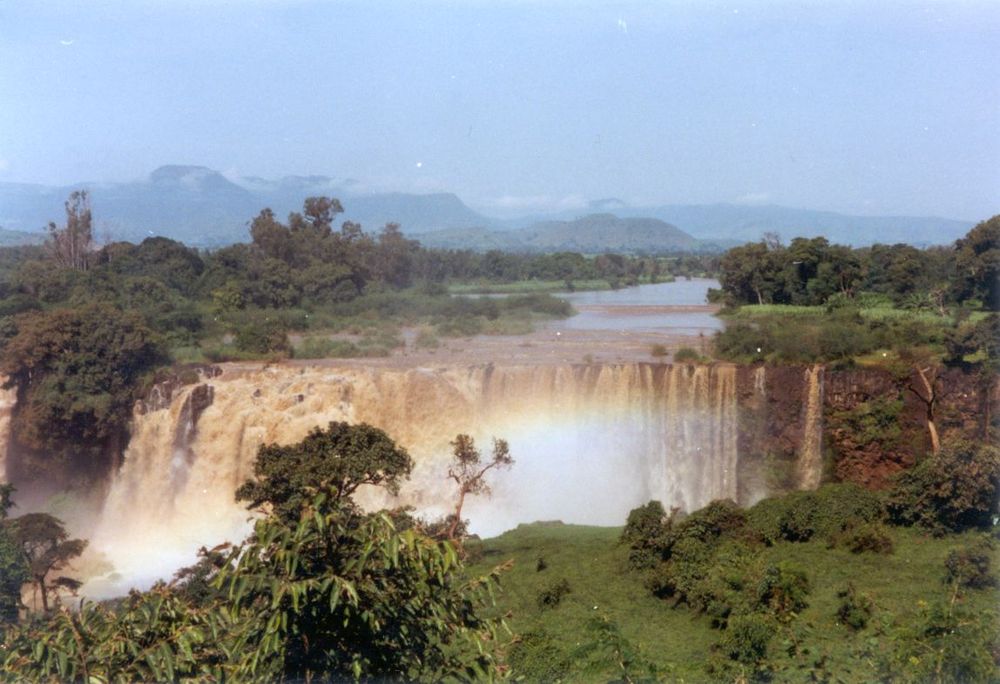Two of the other panelists represented the interests of Egypt and Sudan and a third was an Arabic-speaking journalist from Tanzania based in Cairo. As the only non-Arabic speaking person on the panel and not from the region, I tried to take an academic approach to this controversial issue.

Blue Nile Falls, near Bahar Dar, Ethiopia. Flickr, creative commons licensed, by user mK_B.
Five of the Nile Basin riparian states (Ethiopia, Rwanda, Uganda, Tanzania and Kenya) recently signed a new Nile Basin framework agreement aimed at gaining more legal access to Nile water. Several other upstream countries are expected to sign. Downstream Egypt and Sudan strongly oppose this agreement.
Those two states signed an agreement in 1959 that effectively divided the flow of Nile water 75 percent for Egypt and 25 percent for Sudan, even though 86 percent of the water originates in Ethiopia. None of the other Nile Basin countries signed the 1959 agreement; only Ethiopia was independent at the time. Egypt and Sudan do not want to see any change in the water allocation designated in the 1959 agreement. The upstream states, particularly due to growing population pressures throughout the region, have increasing needs for hydropower and some want to increase irrigated agriculture. Egypt and Sudan see this as a potential threat to their water allocations.
My argument is that upstream hydro dams pose no threat to Egypt and Sudan. The water stops once as it backs up behind the dam and then flows again as before. This is no reason for Egypt and Sudan to get upset.
Large irrigation projects are another matter. They need to be looked at carefully so as not to jeopardize Egypt’s lifeline, the Nile. The same argument applies to a large irrigation project underway in Egypt. There are also ways to improve water usage by better conservation methods in the water sheds and more efficient irrigation techniques than are currently in use. The Nile Basin Initiative has done some excellent work in this area.
Before the current dispute gets out of control, it is useful to remember that the upstream countries have been using water from tributaries feeding into the Nile for many decades. This is not a new issue.
The upstream countries have some legitimate concerns. Ethiopian cities, for example, periodically have no electricity because there is insufficient generating capacity in the country. The downstream countries must take these concerns into account. I have argued for years that the Nile water question is a potential flashpoint in this part of Africa. (See "Avoiding a Water War in the Nile Basin" and "Nile Basin Relations: Egypt, Sudan and Ethiopia.")
Even hysterical rhetoric is not new. Former Egyptian President Anwar el-Sadat stated in 1980 that "If Ethiopia takes any action to block our right to the Nile waters, there will be no alternative for us but to use force. Tampering with the rights of a nation to water is tampering with its life, and a decision to go to war on this score is indisputable in the international community." That statement was made 30 years ago.
There is no need for the Nile water question to result in conflict. I believe that renewed diplomacy and cooler heads will eventually prevail. This current disagreement does underscore, however, the importance of this issue and it will only get worse as the population of the Nile basin area continues to grow at its current rapid rate.



